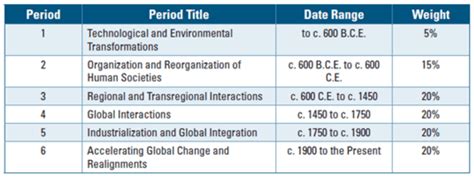The Role of Nobility in Shaping Civilizations
Throughout the course of human history, nobles have played a pivotal role in shaping civilizations around the globe. As the elite class in aristocratic societies, they possessed immense wealth, power, and influence that left an indecipherable mark on political, economic, and social structures. In this comprehensive exploration of nobles in AP World History, we will delve into their unique characteristics, functions, and the enduring legacy they have bestowed upon the annals of human civilization.

Characteristics of Nobility
-
Lineage and Inheritance: Nobles were typically born into aristocratic families and inherited their status from their ancestors. Lineages could trace back generations or even centuries, creating a sense of exclusivity and privilege.
-
Land and Wealth: Nobility often owned vast estates and possessed significant wealth. Landownership was a crucial source of power and income, providing economic security and political leverage.
-
Political Influence: Nobles held positions of authority in government, serving as advisors to rulers, military commanders, and provincial governors. Their influence extended to policy-making, law enforcement, and the administration of justice.
-
Legal Privileges: Nobles enjoyed legal privileges and exemptions not granted to commoners. They were exempt from certain taxes, could own slaves, and had the right to bear arms.
Functions of Nobility
-
Governance: Nobles played a central role in governance, providing advice and support to rulers. They served as councillors, ministers, and administrators, helping to shape policies and maintain stability.
-
Military Service: Nobles were often obligated to provide military service, leading troops into battle and defending the realm. Their expertise in warfare and access to weapons made them formidable adversaries.
-
Economic Management: Nobles managed their vast estates, which included agricultural production, trade, and industry. They employed servants, oversaw finances, and contributed to the economic well-being of their communities.
-
Patronage of Arts and Culture: Nobility often acted as patrons of the arts and culture, supporting artists, writers, and musicians. Their patronage led to the flourishing of intellectual and artistic pursuits.
The Legacy of Nobility
-
Political Systems: The role of nobles in governing and advising rulers influenced the development of monarchies, feudalism, and bureaucratic systems.
-
Social Stratification: Nobility created and maintained rigid social hierarchies, dividing society into distinct classes with varying rights and privileges.
-
Cultural Heritage: The palaces, castles, art, and literature produced by nobles have become invaluable cultural heritage sites, providing insights into past civilizations.
-
Modern-Day Influence: While the concept of nobility has evolved over time, remnants of aristocratic influences can still be found in modern-day institutions, such as hereditary peerages and social elites.
Tips and Tricks for Studying Nobles in AP World History
-
Identify Key Terms: Familiarize yourself with terms such as “aristocracy,” “lineage,” and “fiefdom.”
-
Examine Case Studies: Analyze historical examples of noble societies, such as the Roman patricians, the Chinese mandarins, and the European knights.
-
Understand the Impact of Nobility: Consider the political, economic, and social consequences of noble power and influence.
-
Compare and Contrast: Look for similarities and differences between noble classes in different civilizations and time periods.
Pros and Cons of Nobility
Pros:
- Stability and Governance: Nobles provided stability and continuity by advising rulers and managing key administrative functions.
- Patronage and Culture: The patronage of nobles supported the advancement of arts, sciences, and intellectual pursuits.
- Military Strength: Noble warriors formed the backbone of armies, ensuring defense and territorial expansion.
Cons:
- Social Inequality: The division of society into nobles and commoners created rigid social hierarchies and limited opportunities for social mobility.
- Corruption and Abuse: Nobles sometimes abused their power and privileges, leading to corruption and oppression.
- Resistance to Change: Noble resistance to reforms and new ideas could stifle social and economic progress.
FAQs
-
What were the qualifications for nobility? Lineages, landownership, military service, and political influence were all common qualifications.
-
How did nobles maintain their status? Intermarriage, adoption, and royal patronage helped to preserve noble lineages and privileges.
-
What was the relationship between nobles and peasants? Peasants were often dependent on nobles for land, protection, and economic stability.
-
Did nobles ever lose their power? Yes, revolutions, societal changes, and the rise of democratic ideals have led to the decline of noble power in many societies.
-
What is the modern equivalent of nobles? Some argue that social elites, wealthy business leaders, and political dynasties represent a modern-day equivalent of historical nobility.
-
What is the significance of studying nobles in AP World History? Understanding the role of nobles provides insights into the power dynamics, social hierarchies, and political systems of civilizations throughout history.
